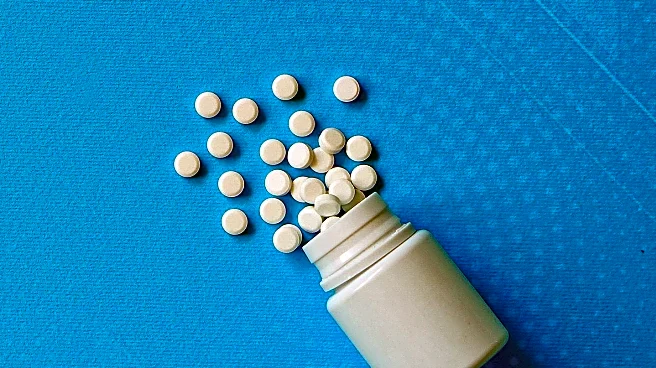What's Happening?
Pharmacists are increasingly recognized for their role in supporting children and young people who self-harm. The Pharmaceutical Journal outlines the importance of pharmacists in conducting medication-related risk assessments and ensuring safe dispensing practices. Self-harm, characterized by deliberate self-poisoning or self-injury, is a significant concern among young people, often leading to hospital admissions. Studies indicate that around 13-14% of young people under 18 in the UK engage in self-harm, with a higher prevalence among females. The National Institute for Health and Care Excellence (NICE) emphasizes the need for pharmacists to collaborate with mental health services to support this vulnerable group. Pharmacists can aid in early identification, education, referral, and risk assessments, playing a crucial role in interrupting the cycle of self-harm.
Why It's Important?
The involvement of pharmacists in addressing self-harm among youth is crucial due to the increasing incidence of such behaviors. Pharmacists can provide early intervention and support, potentially reducing the risk of severe outcomes like suicide. Their ability to conduct risk assessments and manage medication safely can prevent misuse and overdoses, which are common in self-harming episodes. By collaborating with mental health services, pharmacists can ensure comprehensive care and swift referrals, enhancing the safety and wellbeing of affected individuals. This multidisciplinary approach is vital in addressing the complex emotional and psychological needs of young people who self-harm.
What's Next?
Pharmacists are expected to continue expanding their role in mental health teams, particularly in child and adolescent services. Training programs and resources are being developed to equip pharmacists with the skills needed to identify and support self-harming youth. Collaboration with local mental health services will be strengthened to facilitate information sharing and ensure coordinated care. Pharmacists will also focus on educating the community about self-harm signs and prevention strategies, aiming to create a supportive environment for young individuals struggling with self-harm.
Beyond the Headlines
The increasing recognition of pharmacists in mental health care highlights a shift towards more integrated and holistic approaches to healthcare. This development underscores the importance of addressing mental health issues in primary care settings and the need for compassionate understanding of the emotional complexities faced by young individuals. The role of pharmacists in self-harm prevention also raises ethical considerations regarding patient confidentiality and the balance between safeguarding and respecting autonomy.











